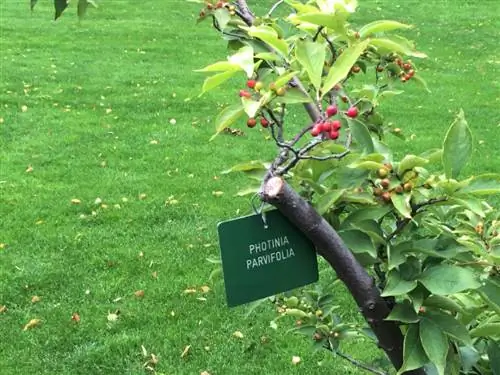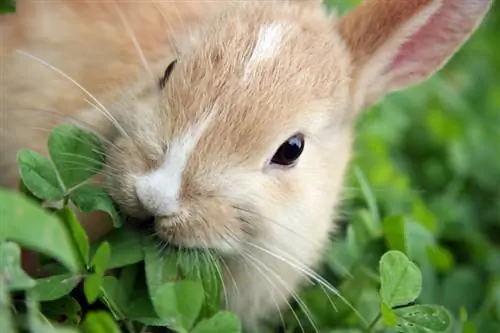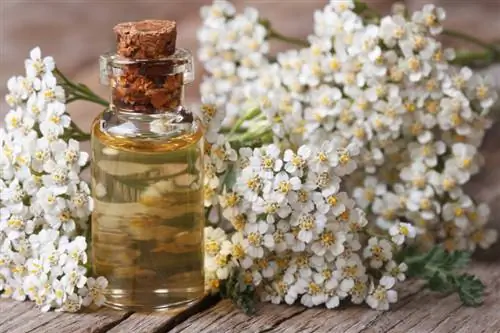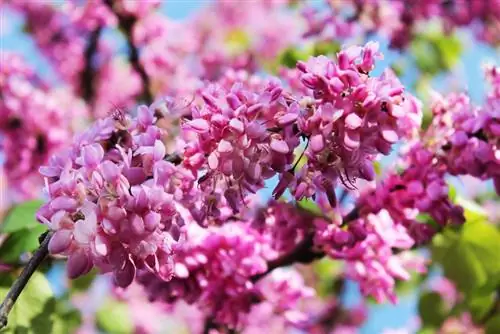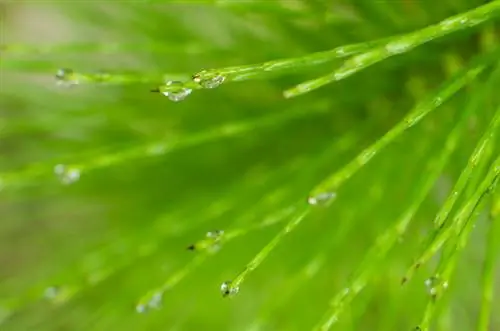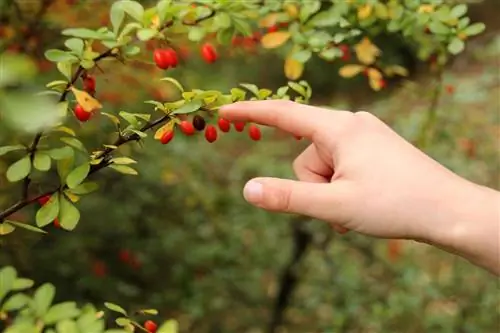- Author admin [email protected].
- Public 2023-12-16 16:46.
- Last modified 2025-01-23 11:21.
It is well known that the fruits of the loquat are poisonous to humans. But the toxic effect only arises through special chemical processes. With little tips you can plant the loquat without hesitation.
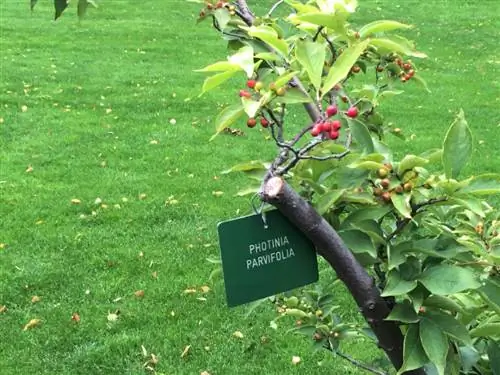
Are loquats poisonous to people and animals?
Are loquats poisonous? Loquats contain cyanogenic glycosides in leaves, stems, fruits and seeds, which form hydrogen cyanide when they come into contact with certain enzymes. There is a low risk of poisoning for humans, while horses can suffer more serious symptoms of poisoning.
Toxicity to humans and animals
Loquats develop numerous red or blue fruits in autumn that are reminiscent of small apples. In addition to their decorative character, the fruits fulfill another function in winter. They serve as popular food for birds. While some animals such as horses can experience severe symptoms of poisoning after consumption, there is only a low risk of poisoning for humans.
Overview: The Plant Poison
The leaves, stems, fruits and seeds of some loquat species contain cyanogenic glycosides. These plant poisons are contained in numerous seeds of rose plants and consist of a combination of alcohol, carbohydrates and a nitrile group. This chemical compound is not poisonous in itself. When certain enzymes break down the compound, hydrogen cyanide is formed. If horses eat the plant parts, the hydrogen cyanide intervenes in the energy metabolism within a short time. The tissue cannot absorb oxygen. This results in muscle cramps, an increased heart rate and rapid breathing.
Symptoms in humans:
- Headache and dizziness
- Nausea and vomiting
- Diarrhea
Plant safely
Not all species and varieties of loquats are suspected of being poisonous. There is no need to worry when planting the popular 'Red Robin' variety. In environments where children play, you should ensure that dead inflorescences are regularly pruned. This will prevent fruit from forming that would encourage children to snack. In the area of horse paddocks and pastures, you should avoid planting medlar hedges or cut back the branches so that animals cannot eat them.

